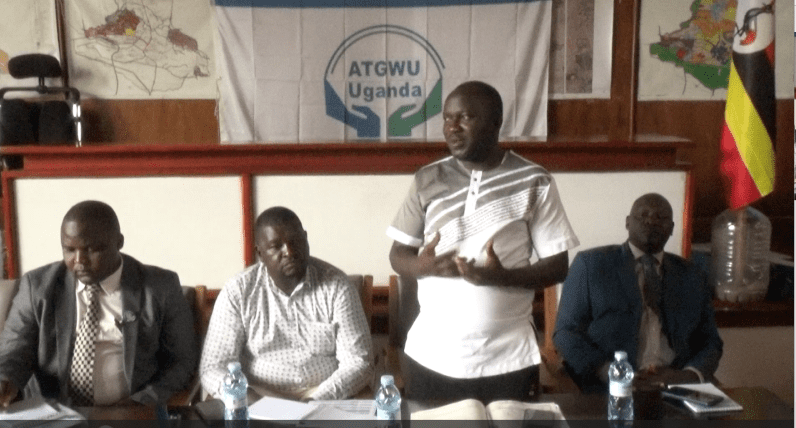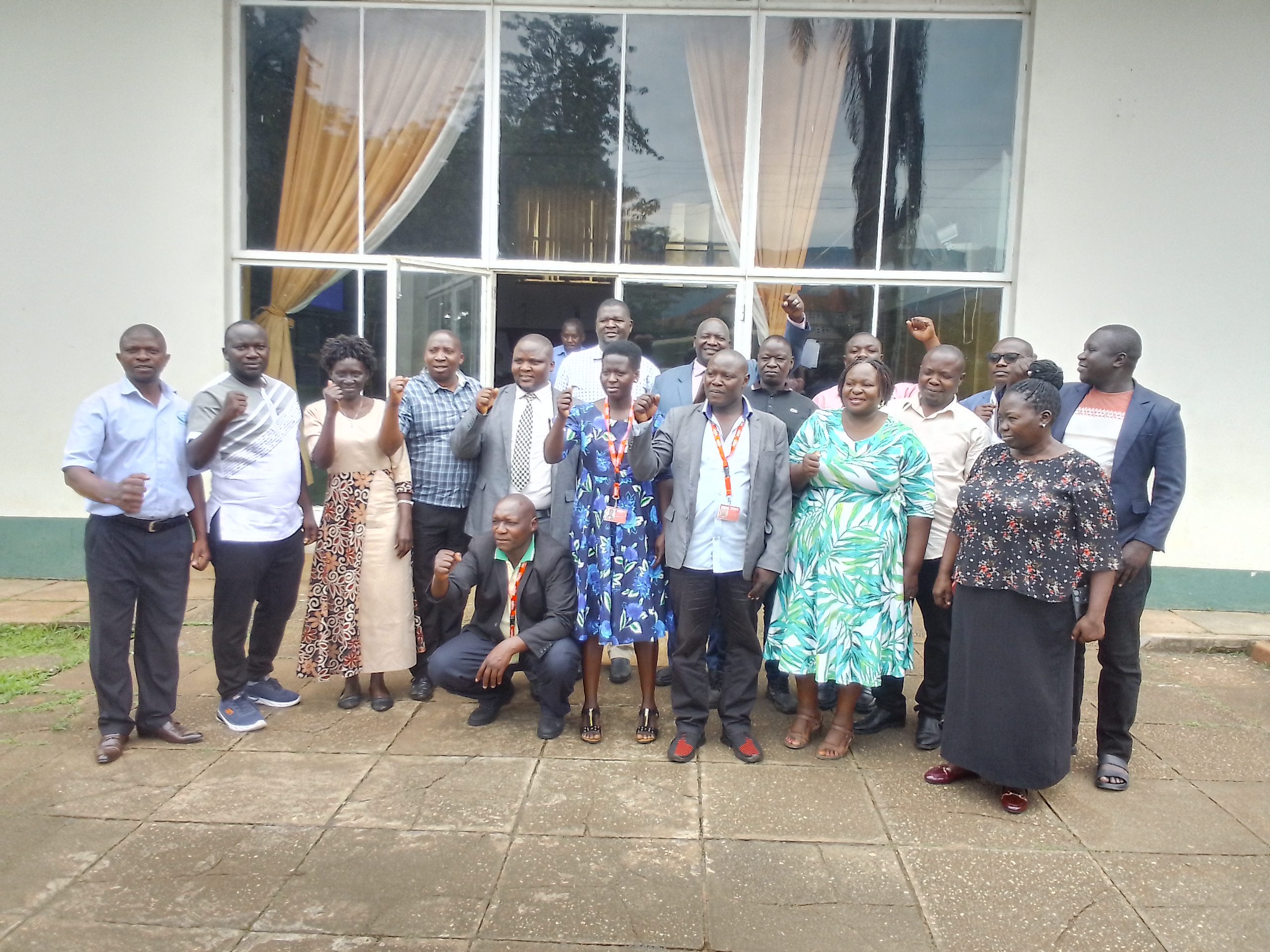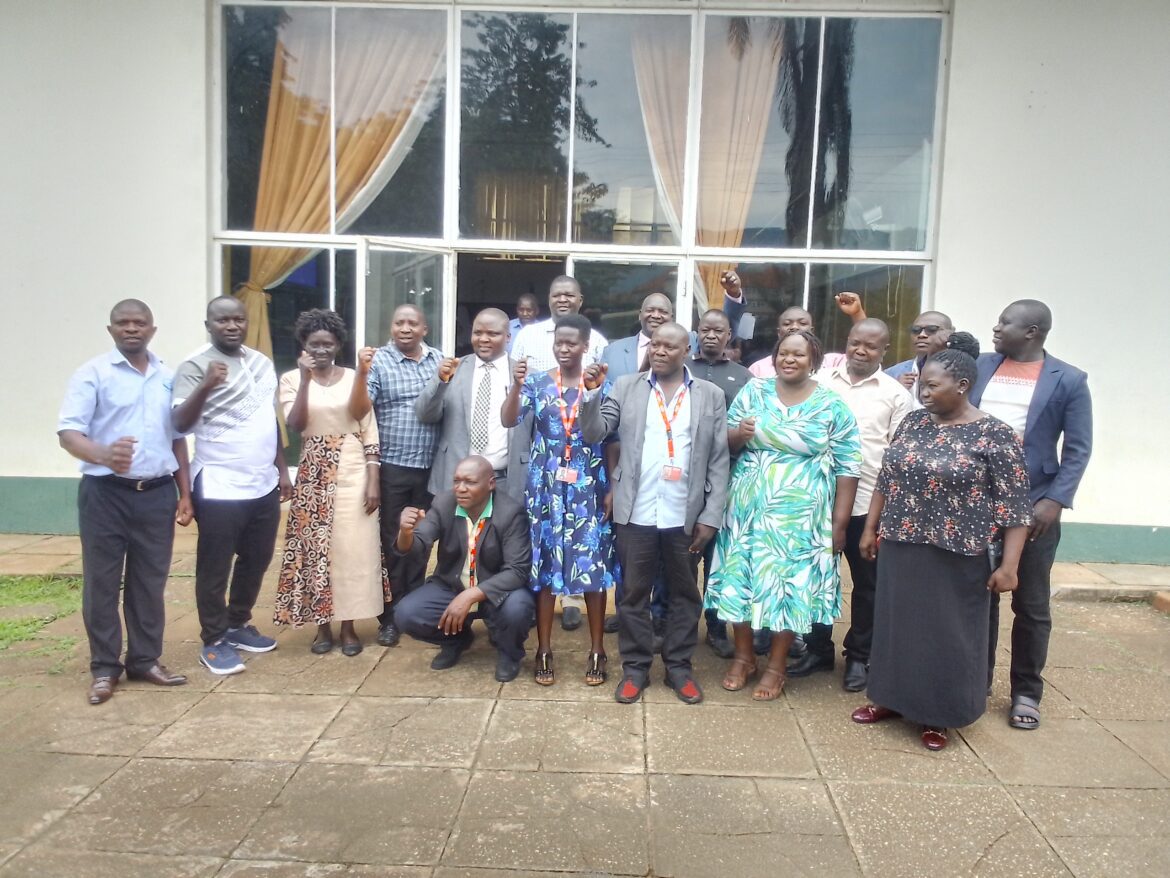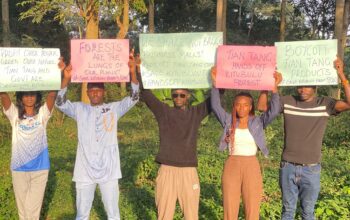By Henry Okech
Climate change is one of the most significant challenges of our time.
The efforts to mitigate carbon emissions and adapt to climate change effects already have far–reaching implications for our daily lives and the world of work.
With this Amalgamated Transport and General Workers’ Union (ATGWU) a worker’s union Body with the support from FNV and NOTU has rolled out a nationwide campion to sensitize trade unions across the country towards climate change and just a transition
Meeting trade union leaders for Eastern Region in Mbale city the Secretary General ATGWU Bro Steven Abima says, the consequences of climate change, such as rising temperatures, flooding, and extreme weather events, are already being felt worldwide. While mitigation policies are mainly directed at.

“Industrialized cities like Mbale city have the most considerable emissions, developing nations are also concerned about the impact of such policies on their economies. Considering national circumstances, it is essential to have common but differentiated responsibilities and respective capabilities” Abima remarked.
Most developing countries have limited economic diversification and are heavily dependent on few industries, making them vulnerable to economic, pandemic, and climate shocks.
Rapid population increase, fiscal deficits, and limited innovation capacities also pose further challenges for these countries.

The national chairman ATGWU Bro Oloro Dennis emphasized the need to adopt this program for a better Environment and for the future;” This transition must be managed in a just and socially responsible way, focusing on protecting workers’ rights and ensuring that those impacted by these changes are supported. A just transition must be managed in a fair and equitable way for all. This includes providing social protection for millions of workers who may lose their jobs, as well as promoting social dialogue”
Additionally, the UN 2030 Agenda for Sustainable Development (SDG) and the Green Initiative were established to support a fair, just, and equitable transition that does not leave workers behind.
While progress has been made towards these goals, the necessary scale of efforts to meet the SDGs by 2030 is insufficient.
At the 2019 United Nations Climate Action Summit, 46 countries made a significant commitment to prioritize jobs in ambitious climate action and to promote a just transition.
The initiatives bring together governments, workers’ and employers’ organizations, international institutions, academia, and civil society to deliver changes.
It is important to recognize that the transition to de–carbonization affects many industries and occupations, including those involved in manufacturing, mining, transport, agriculture, construction, electricity, air conditioning, waste management, and more.
As this shift occurs, some jobs will disappear, others will be restructured, or entirely new opportunities will emerge.
The Deputy town clerk Mbale city who represented the town clerk says, the transition must be managed in a just and socially responsible way, focusing on protecting workers’ rights and ensuring that those impacted by these changes are supported.
“A just transition must be managed in a fair and equitable way for all. This includes providing social protection for millions of workers who may lose their jobs, as well as promoting social dialogue and collective bargaining agreements with employers must be a key platform for collaboration”.

One critical aspect of this transition is upskilling and reskilling workers to thrive in low-emitting industries and sectors.
A just transition is crucial to ensure that the burden of climate action does not disproportionately fall on vulnerable workers and communities.
It is about safeguarding workers’ rights, creating new green jobs, and promoting inclusive policies that address inequality and social injustices.
ATGWA is to move all regions of Uganda sensitizing workers about the program.





